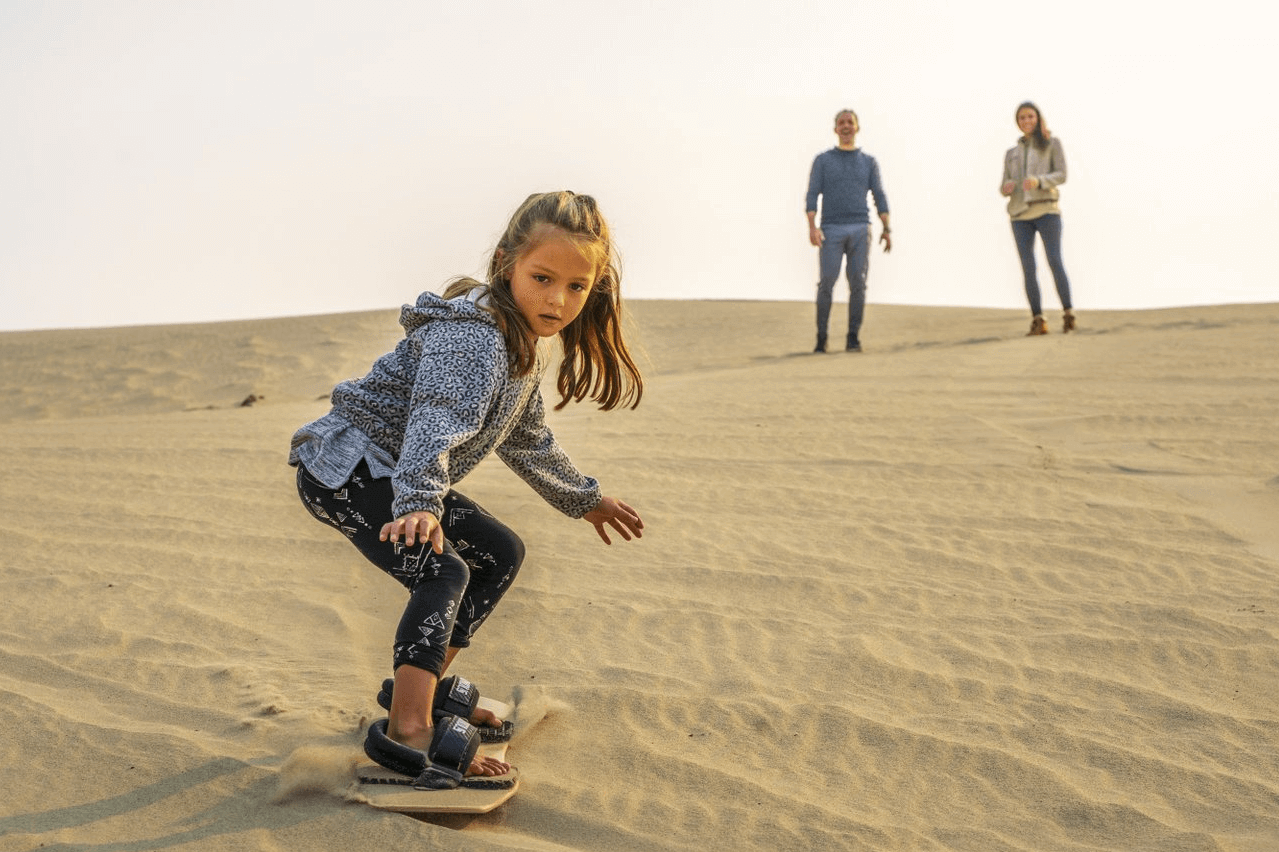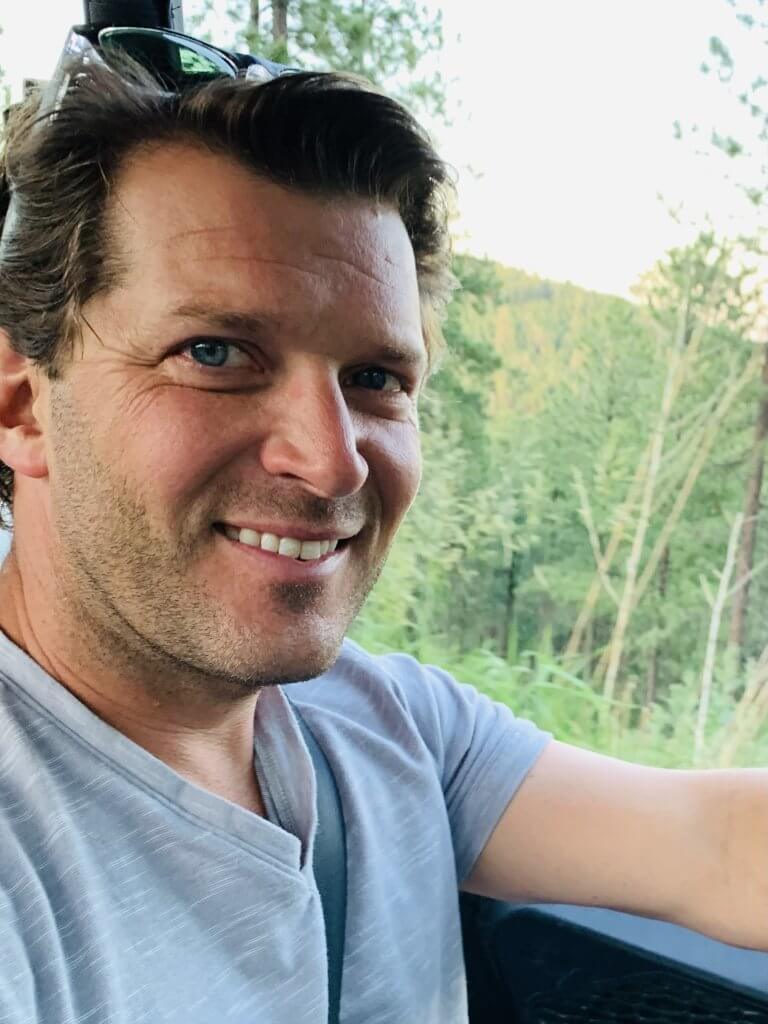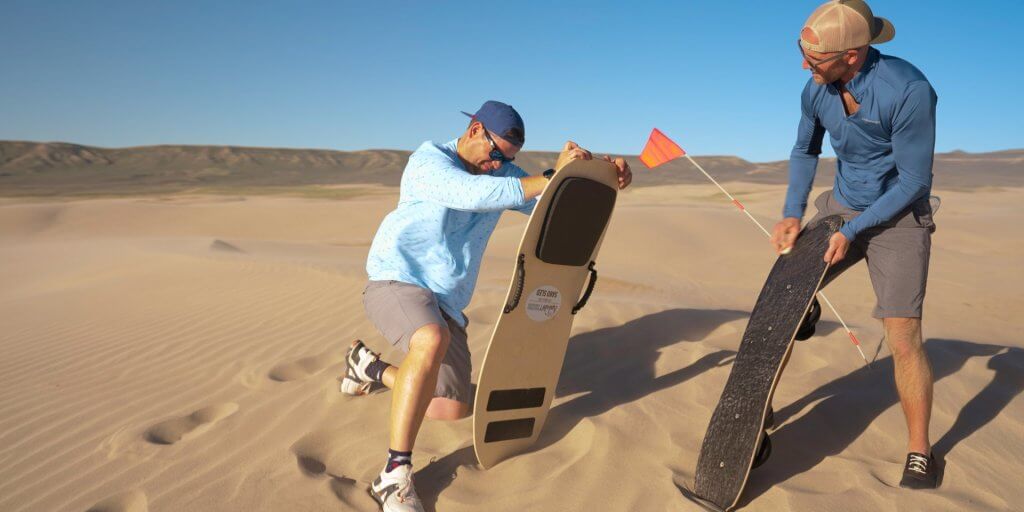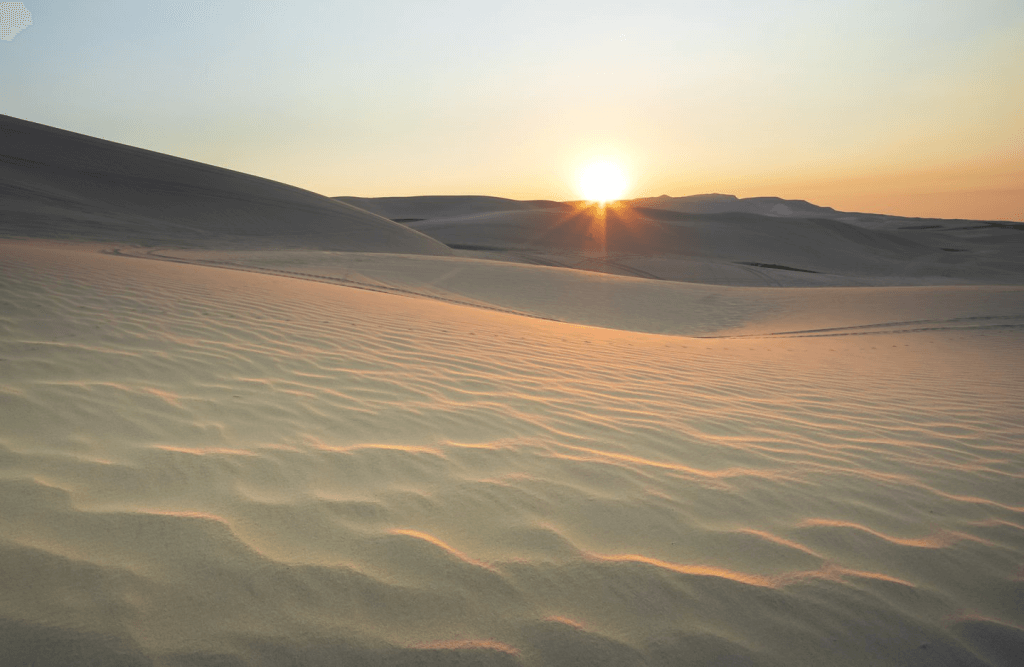Sand Surfing: What It Is & Where to Go
Reminiscent of the sweeping, sunny sand dunes in Saudi Arabia or Peru, Wyoming’s sand dune scene is unmatched—especially when it comes to the opportunity to try sand surfing and sandboarding.

Ultimate Guide to Sand Surfing in Wyoming
Reminiscent of the sweeping, sunny sand dunes in Saudi Arabia or Peru, Wyoming’s sand dune scene is unmatched—especially when it comes to the opportunity to try sand surfing and sandboarding.
What Is Sand Surfing or Sandboarding?
Sand surfing or sandboarding is a board sport similar to surfing, skateboarding and snowboarding, but the rider descends upon—you guessed it—sand. If balance isn’t your thing, Wyoming is one of the best places to go sand sledding and is an excellent option for those wanting to experience the thrill of the dunes without being too coordinated.

Cody Serk, sandboarder, said he had only seen dunes this impressive in the movies.
“Beautiful white sand underneath your feet makes it feel like a mini-day vacation,” he said.
“The sand definitely gives Wyoming a unique feel.”
Where to Sand Surf in Wyoming
Without a doubt, the best place to go sand sledding in the Cowboy State is Wyoming’s Killpecker Sand Dunes. Spanning 109,000 acres, Killpecker Sand Dunes is the second-largest active sand dune field in the world and is a must-visit.
Sandboarding at Killpecker Sand Dunes
Located in Wyoming’s Red Desert, just north of Rock Springs, the Killpecker Sand Dunes were formed more than a million years ago when volcanoes erupted. With lava and hot ash covering much of what is known today as Sweetwater County, wind erosion began to transform the volcanic landscape into cloud-like sand.
Must-See Things to Do near Killpecker Sand Dunes
As you embark on your sand surfing adventure, keep an eye out for Boar’s Tusk—a dormant volcanic structure rising 400 feet above the valley floor.
According to Cody, “You will easily be able to spot Boar’s Tusk on the way out to the dunes.”
History buffs shouldn’t miss the White Mountain Petroglyphs—a sacred site home to sandstone etchings from Indigenous peoples of the Plains and Great Basin.
Sandboarding Equipment: Getting Started

Sandboards and sand sleds are specifically designed for sand, so it’s important to use the correct equipment. Using snowboards, skis, snow sleds, saucers and cardboard will cause drag on the sand and may cause you to fall.
Besides a waxed board or sled, Cody recommends a helmet and sun protection, whether that be sunglasses or a sun shirt with SPF. Although the National Park Service does not sell or rent sand surfing equipment, there are many opportunities to grab your gear before heading to the dunes. “It’s also a good idea to bring flags or heavy construction cones (if you have some laying around), or stay away from the dunes if you know it will be a busy weekend,” Cody added. “Because ATVs like to use the sand dunes from time to time, marking your area along a ridge will notify others you are there.”
Where to Rent Sandboarding Equipment
If you don’t already own a board or sled, don’t worry! There are a couple of options near Killpecker Sand Dunes to get you started.
The Explore Rock Springs & Green River Visitor Center provides options for purchasing and renting boards and sleds, while board rentals are available at Rockin Rollin Rentals & Sales.
“Visiting the Killpecker Sand Dunes is free, so you only need to pay for what you pack in,” Cody said. “Plus, the visitor center supplies wax, which will improve your ride.”
Where to Buy Sandboarding Equipment
If you’re hooked on sand surfing or sandboarding (we don’t blame you), most sporting good stores sell boards and sleds. Of course, you can always purchase your equipment online, but it’s often a good idea to ask for input from experts in person.
Sand Surfing Tips for Beginners
For those who have skateboarded or snowboarded, sand surfing might come easier to you. If you’ve never participated in those sports, that’s okay—take your time and be patient with yourself!
“There is a bit more drag on a sandboard than there is on a snowboard,” Cody said. “I place more weight on my back leg, which allows you to lean forward more.”
As you hike up the hills, Cody urges beginners not to be intimidated by the steep dunes. “Gravity doesn’t work the same on sand as it does on snow,” he said. “You’ll need a slope to start moving.”
- If you’re a beginner, start slow. Sand is harder than snow, so be patient with yourself, especially if this is your first time, and always wear a helmet.
- Check the weather before your trip. Opt for a cooler day when the sand will be less hot and when thunderstorms are less likely. Don’t forget to check the wind before heading out—the wind in Wyoming can bring some unexpected conditions.
- Cell service can be limited. It’s important to either tell someone where you’re going or, better yet, go with at least one other person. Printed maps and compasses can also be handy.
- Hydrate and bring water. Like any sport, it’s important to fuel your body. Don’t forget to bring plenty of water and snacks. After all, you are sandboarding in the desert!
- Use flags when sand surfing. Killpecker Dunes is popular with ATVs, so it’s important to remain visible.
- Ensure your vehicle is desert-ready. If you’re planning to drive to the dunes, be sure that your vehicle has four-wheel drive, high clearance and sand-appropriate tires. Remember to check for a spare as well, just in case.
- Bring sun protection. The desert is famously sunny, so wear sunscreen and sun protection.
More About Sand Surfing in Wyoming
Ready to start planning your trip to one of the best places to go sand sledding, Wyoming?
Can You Camp Near Killpecker Sand Dunes?
Yes, you can! The Killpecker Sand Dunes Open Play Area Campground is a 10-acre flat on the edge of the dunes and is free for the public. Enjoy fire rings and picnic tables, too.
When Is the Best Season to Go Sand Surfing?
Mild temperatures, fewer thunderstorms and the opportunity to see wildlife make fall the best season to go sand surfing in Wyoming. Summer is another great option, but be mindful of afternoon heat and thunderstorms. Both spring and summer are dangerous due to snow and wind and are generally not recommended.
When Is the Best Time to Sand Surf?
If you’re opting to visit during the summer, set your alarms for early in the morning. It’s important to beat the afternoon heat when air and sand temperatures can become scorching.
